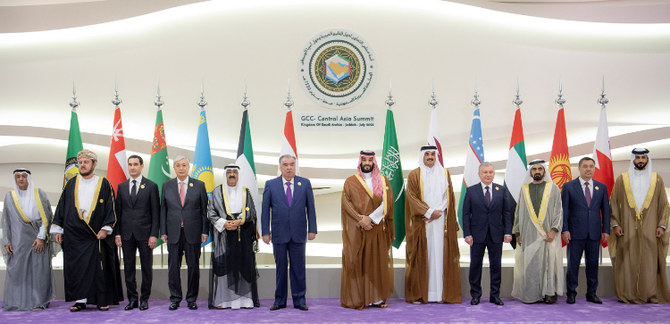
Like the rest of the world, Arab countries are closely following developments in the Afghanistan arena. Middle Eastern nations fear that the war-torn country will once again descend into a devastating civil war, just like the one that began in the late decades of the 20th century.
There is no question that the bitter experiences of Afghanistan’s recent past are concerning to regional countries, primarily the Arab nations. Taking this into consideration, the official declared positions of most Arab countries and Gulf states — except Qatar, which appears to be a strong backer of the Taliban — can be understood.
Chief among these concerns is the establishment of an ideologically driven state that adopts an extremist interpretation of religion in all its forms, which could turn Afghanistan into a new global terror center, attracting extremists and redeploying them across the world; as was the case with the rise of Al-Qaeda and the extremist offshoots it inspired and spawned. It is often forgotten that Iran facilitated the passage of Al-Qaeda operatives who carried out the 9/11 terrorist attacks. Therefore, it is extremely important to continue to closely monitor the close relations between Iran and the Taliban.
The stereotypical image of the Taliban continues to loom large over the Afghan scene, despite the movement attempting to moderate its image and promises. The reason why these promises are not taken seriously is the recollection of events in Afghanistan’s neighboring country, Iran, after the fall of the shah’s regime in 1979. At that time, Ayatollah Khomeini and his supporters made promises to Iranians at home, as well as to neighboring countries. He called on the new political system to work for cooperation, affinity and Islamic unity. However, the regime quickly reneged on these promises, revealing an extremist ideological worldview both domestically and abroad. Iranians and people all across the region have suffered the gloomy consequences ever since.
At present, we are witnessing several Iranian overtures to the Taliban. Numerous media reports and Iranian officials have alluded to these overtures. In addition, delicate monitoring of the ongoing developments in Afghanistan, moment-by-moment assessments and close monitoring of the signals sent periodically by Iran point to a growing warmth in the relations between Tehran and the Taliban.
These Arab concerns are not illusory. Indeed, they are based on an all-too-tangible reality, which includes deep-rooted relations between the Taliban and the clerical regime in Iran that have grown over the past two decades, with Tehran providing the Taliban leadership with logistical services, while it also hosted Al-Qaeda leaders in Tehran. Iran has even permitted the Taliban to open a clandestine office in the eastern city of Mashhad close to the border with Afghanistan.
Many analysts adopt the classical approach when examining the relationship between the Taliban and Tehran, arguing that because the two have opposing extremist sectarian ideologies they will have divergent and conflicting relations. While this was true prior to 2001, the nature of this relationship changed massively after the US invasion of Afghanistan, with strong ties being formed (although some may insist that this relationship is based on realpolitik, necessity and shared interests), including the aforementioned provision of Iranian logistical and intelligence services to the Taliban. The latter’s officials have regularly visited Tehran to meet with senior officials.
In reference to the proximity between the two, we can mention the 2016 US drone strike that killed the former Taliban leader Mullah Akhtar Mansour while he was returning from Iran.
Those who have monitored the comments and remarks made by Iranian officials regarding the Taliban would have noticed a softer tone toward the movement. For example, in a December 2020 interview conducted by the Afghan Tolo TV channel with then-Iranian Foreign Minister Javad Zarif, the host asked about Iran’s position on the Taliban. Zarif attempted to avoid giving a direct answer. After relentless pressure from the host, Zarif said: “As you pointed out, the Taliban killed eight of my colleagues before doing so with others. Therefore, our definition of the Taliban is that the Taliban has committed many terrorist acts. Before naming the Taliban as terrorists, the Taliban is a group in Afghanistan that has committed terrorist acts and it is necessary now to consider the Taliban as part of a future solution, not (the whole) future solution for Afghanistan. There is a big difference in it.” When pushed again, Zarif added: “Look, the Taliban has committed many terrorist acts. Regarding recognition of the Taliban as a terrorist group, we have not removed the Taliban (from our list of) terrorist groups, in our laws.”
Here, it is necessary to point out that the new generation of Taliban leaders may not necessarily embrace the same complex ideological tenets espoused by the movement’s founding fathers. There is now a more pragmatic approach and political objectives that significantly impact the decision-making process in the Taliban’s top leadership. As a result, the Taliban has no problem turning a blind eye to the fact that Iran played a pivotal role in the fall of its former government. But the Taliban’s next approach with regard to Iran depends on the nature of its relations with the remaining actors, especially the US and China.
The nature of their relationship changed massively after the US invasion of Afghanistan.
Dr. Mohammed Al-Sulami
In light of these points, what the region’s countries can do is devise a watertight strategy that prevents the formation of a dangerous alliance between the two ideological extremes — Iran and the Taliban — through adopting a policy that avoids pushing the Taliban into Iran’s embrace.
These countries should work to reconcile Afghanistan’s warring political factions in order to establish a unity government that does not espouse a reactionary ideology, but rather considers the interests of the Afghan people, establishes balanced relations with neighboring countries, and combats sectarian groups and armed militias with cross-boundary loyalties.
However, a major obstacle stands in the way: Namely the conflicts between the major world powers that have transformed Afghanistan into an arena to settle their disputes and serve their own narrow interests, paying no heed to the interests of the Afghan people, who, despite living in their own nation for generations, indeed millennia, are still denied any say.
Dr. Mohammed Al-Sulami is President of the International Institute for Iranian Studies (Rasanah). Twitter: @mohalsulami
Disclaimer: Views expressed by writers in this section are their own and do not necessarily reflect Arab News" point-of-view












